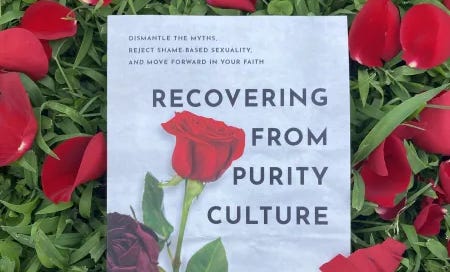Healing after purity culture, an author interview
Camden Morgante talks with us about her book *Recovering from Purity Culture: Dismantle the Myths, Reject Shame-Based Sexuality, and Move Forward in Your Faith*
Fellow Pilgrims,
I got to talk with Camden Morgante about her new book Recovering from Purity Culture.
Dr. Camden Morgante is a licensed clinical psychologist who owns a private therapy practice. She is a writer, speaker, and coach on purity culture recovery, egalitarianism, and faith reconstruction. She lives in Knoxville, Tennessee with her husband and…
Keep reading with a 7-day free trial
Subscribe to Church Blogmatics by Beth Felker Jones to keep reading this post and get 7 days of free access to the full post archives.





